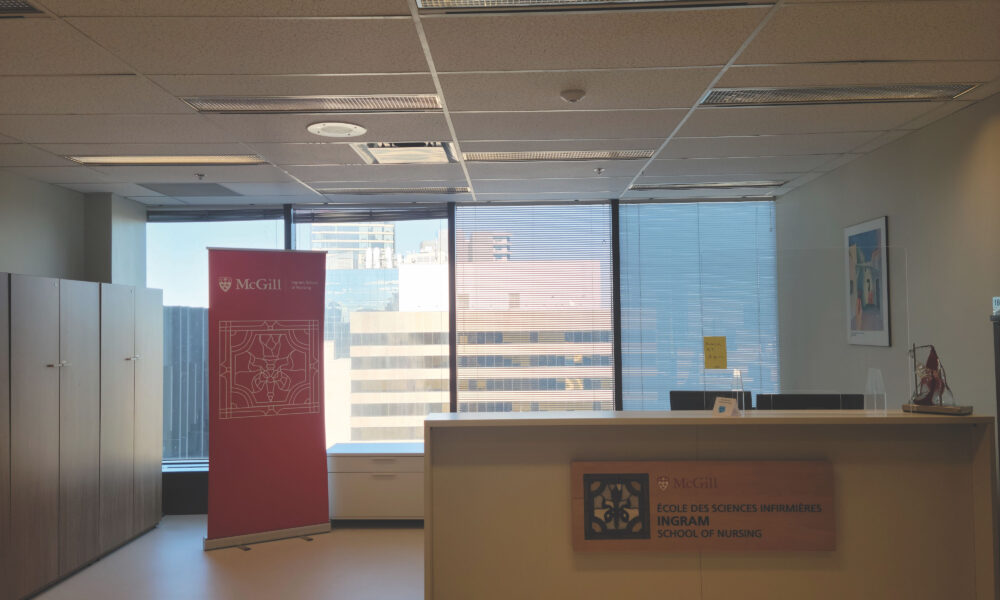Due to an alleged lack of communication between McGill and international students at the Ingram School of Nursing (ISoN) about work and study permits, some international nursing students are at risk of being unable to complete their mandatory clinical studies this academic year. Those unable to quickly acquire the proper documentation may potentially fall behind in their courses, forcing them to spend more on tuition in order to complete the program.
Upon admission to McGill, all international students must apply for study permits, which allow them to legally reside in Canada during their time studying at a designated institution. International nursing students have additional hoops to jump through: They must obtain co-op work permits and submit to a medical examination, which involves completing a medical questionnaire and a physical exam, before they may begin clinical work. Although the basic co-op permit allows international students to work in Canada, nursing students cannot work in the medical field without successfully completing a medical examination.
Several international students in McGill’s nursing program contend that both Immigration Canada and the university did not clearly communicate about the additional steps required during the permit application process. Alex*, a U1 nursing student, is one of these students.
“Immigration had never signalled a problem [….] I think they just expect you to know [to get the medical examination],” Alex said in an interview with The McGill Tribune. “McGill noted this clause when they were reviewing documents, and then signalled it, but it was a bit late to signal it.”
In a written statement to the Tribune, McGill media relations officer Frédérique Mazerolle explained that it’s up to students to make sure their documentation is correct before starting their studies at McGill.
“It is the student’s responsibility to ensure that they have met all the requirements, including proof of medical examinations, and that their paperwork is in order before they begin their studies,” Mazerolle wrote. “This year, it was discovered that a handful of students did not have the necessary paperwork to work in the clinical setting.”
Due to the protracted nature of the medical examination process—and the minimum of four weeks it takes to process results—many international students may not receive the appropriate documentation in time to complete their clinical studies. Alex reports having to put their clinicals, which were supposed to begin in October, on hold until their medical exam has been processed.
“Once you have the exam, the physician has to send it to immigration, and once they send it to immigration, they internally have to process it,” Alex said. “Everything that immigration does takes ages, and they told me that processing times can take from three weeks to six months.”
Alex noted that after Immigration, Refugees, and Citizenship Canada (IRCC) processes the results of the medical examination, foreign nationals are then required to leave the country and re-enter in order to obtain the correct work or study permit.
“Once [the medical exam] has been processed […] I have to go to the border and cross out of Canada and into the U.S. and then come back in,” Alex said. “It’s called flagpoling, and because Canadian immigration does not have any offices inside of Canada, they only have them at the border, in order to get your work permit or your study permit you have to cross the border.”
In an email to the Tribune, Kerry Yang, vice-president of University Affairs at the Students’ Society of McGill University, asserted that the university also ought to provide additional support for students whose studies may be delayed as a result of these complications.
“Support shouldn’t just be words and policy, otherwise it gets performative in nature. It should be sustained and committed, and […] should be given in good faith,” Yang wrote. “It also makes sense for McGill to support any student who has to take extra time to finish their degree because of issues beyond their control.”
*Alex’s name has been changed to preserve their anonymity.








